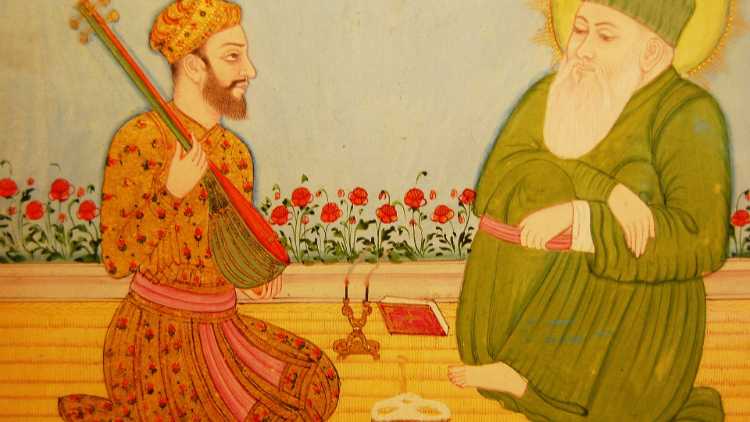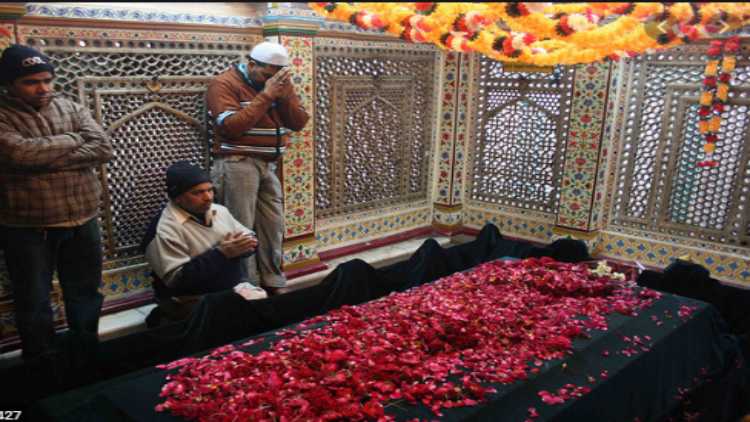
Saquib Salim
Ziauddin Barni, a contemporary of Hazrat Amir Khusrau, writes in Tarikh-i-Firoz Shahi “The incomparable Amir Khusrau stands unequalled for the volume of his writings and the originality of his ideas for, while other great masters of prose and verse have excelled in one or two branches, Amir Khusrau was conspicuous in every department of letters. A man with such mastery over all the forms of poetry has never existed in the past and may perhaps not come into existence before the Day of Judgment.”
Barni further notes, “He fasted every day and passed most of his time reading the Quran, and in obligatory and supererogatory prayers. He was one of the chief disciples of Shaikh Nizamuddin Aulia; and a disciple with a firmer faith in his master than I have ever seen. Of love and affection, too, he had his full share, and he was a man of ecstasy and rapture. He excelled in the playing and composition of music. Almighty God had bestowed on him all the qualities that appertain to an artistic and cultured mind. He was, in fact, a wonderful being, a strange phenomenon for these later times.”
Amir Khusrau was born to Saifuddin, a Lachin Turk leader, in 1254 AD at Patiyali in present Uttar Pradesh. Even after losing his father at the young age of seven Khusrau received a good education. His proficiency in Persian, Arabic, Brij Bhasha, and Sanskrit prove him to be a literary genius. Soon, he took up a career as a poet and composed poems in praise of several rulers, namely, Malik Chajju, Sultan Mohammad, Kai-Kabad, Hatim Khan, Jalaluddin Khilji, Alauddin Khilji and Ghiasuddin Tughlaq.

Amir Khusrau's tomb at Nizamuddin, New Delhi
Khusrau, a multifaceted personality, was a warrior also. In 1285 AD Mongols invaded Punjab. Sultan Mohammad had the responsibility to guard the frontier of whose army Khusrau was an officer.
In the battle, Sultan was killed and Khusrau was taken captive. Khusrau later described the incident as, “The Muslim martyrs dyed the desert with their blood, while the Muslim captives had their necks tied together like so many flowers into garlands. I was also taken prisoner, and from fear that they would shed my blood, not a drop of blood remained in my veins. I ran about like water, here and there, with innumerable blisters on my feet like bubbles on the surface of a stream. My tongue was parched and dry from excessive thirst and my stomach seemed to have collapsed for want of food. They (took away my clothes from me and) left me nude like a leafless tree in winter or a flower that has been much lacerated by thorns. My Mongol captor sat on a horse like a lion bestriding the spur of a mountain; a disgusting stench came out of his mouth and his armpits, and on his chin there grew, like a hyacinth, a tuft of pubic hair. If through weakness I lagged a little behind, he would threaten me sometimes with his frying pan and sometimes with his spear. I sighed and thought that release from such a situation was quite impossible. But, thank God, I did regain my freedom without my breast having been pierced by an arrow or my body cut into two by the sword.”
On return to Delhi Khusrau wrote an elegy praising the martyrdom of Sultan as an eyewitness as well as the torture he had to go through. The elegy became so popular that for months people used to recite it and weep.
Apart from being a man of letters and a warrior, Khusrau was a mystic as well. The influence of Hazrat Nizammudin Aulia on his life cannot be overlooked. Khusrau was a man who wanted to earn a name for himself through his literature and art. He wanted recognition in society and served royal courts. The encounter with Nizamuddin Aulia brought him to the reality that spiritual development is a greater achievement than any worldly wealth. Khusrau would spend most of his time in the company of Aulia after this. Aulia also grew fond of him. Aulia would listen to the news of the society from him and give him spiritual lessons.
Aulia used to tell him, “Pray for my life for you will not be able to survive me long.” The prophecy proved to be true and Khusrau left this world within months of Nizamuddin Aulia in 1325 AD.
Today, we remember this polymath as a poet, prose writer, composer of riddles, musician, warrior and Sufi saint.
(Saquib Salim is a historian-writer)
